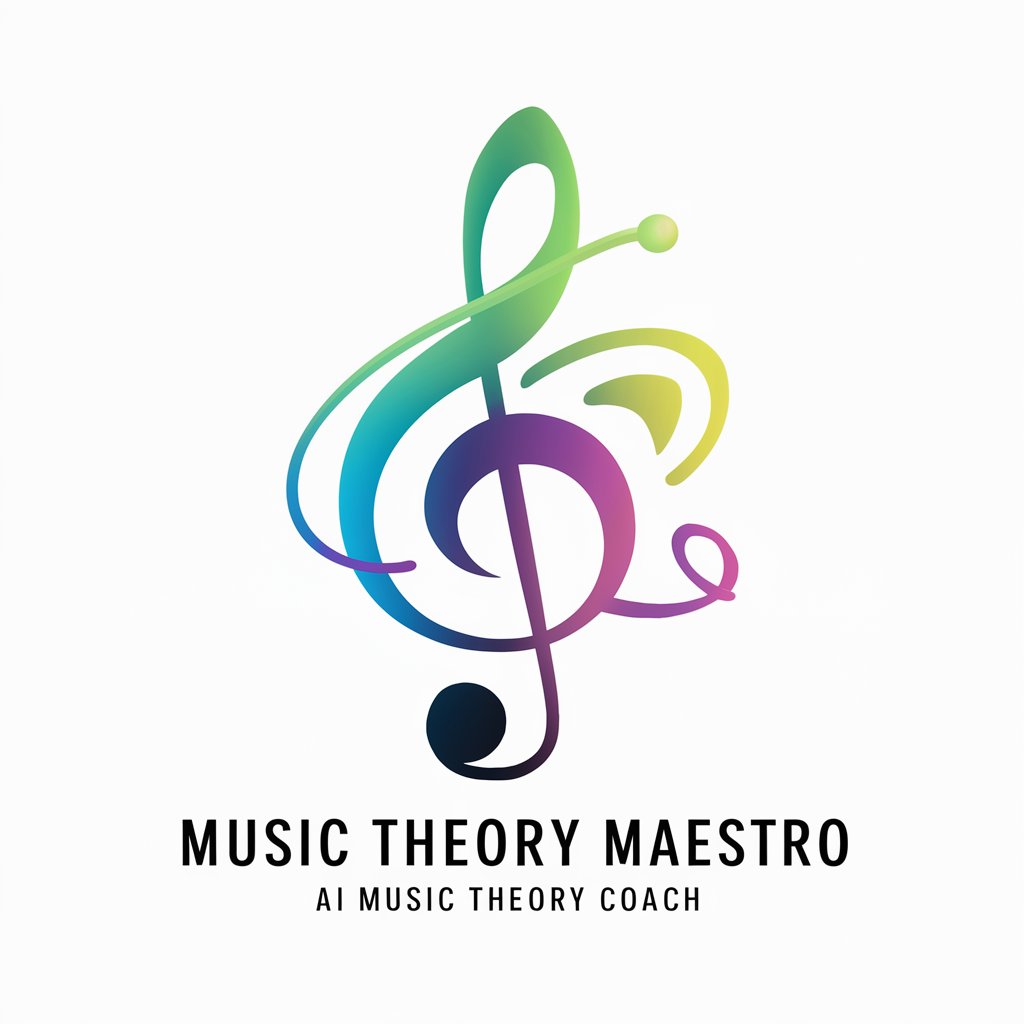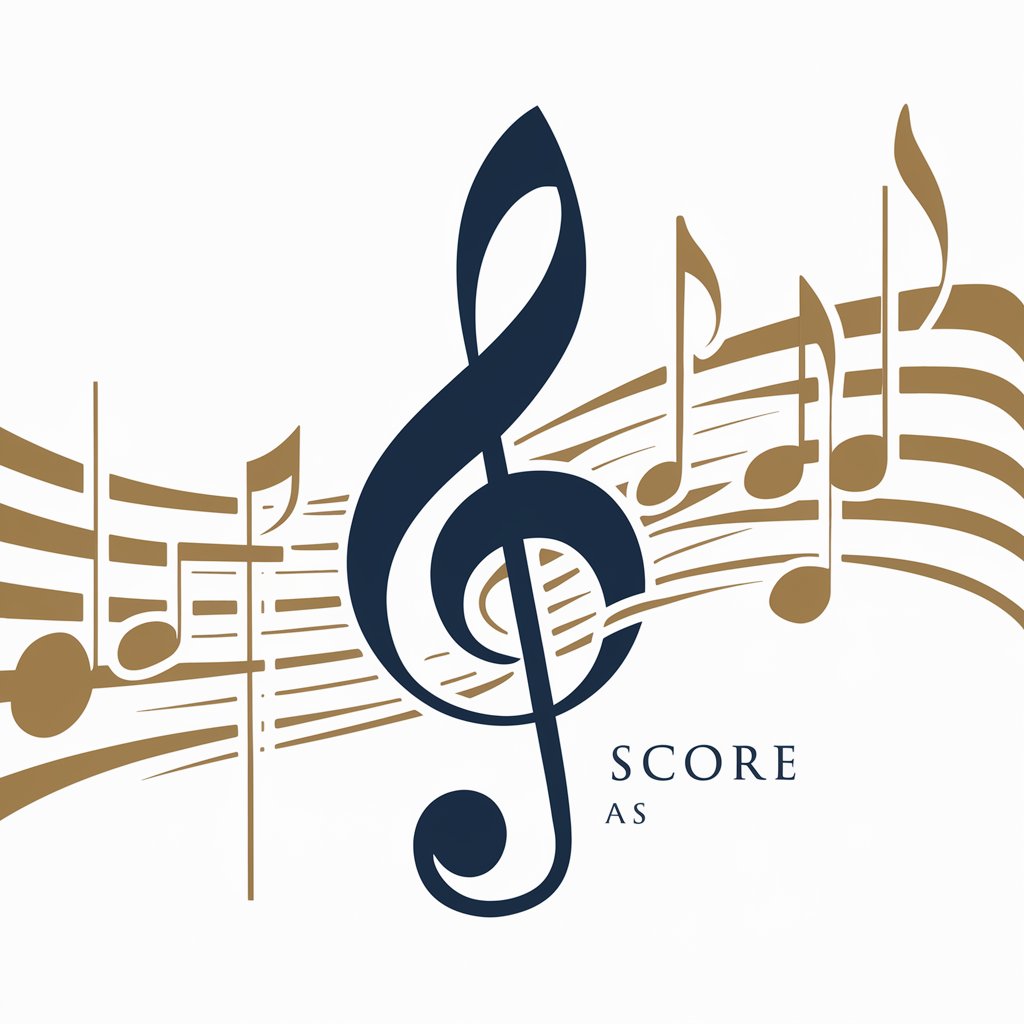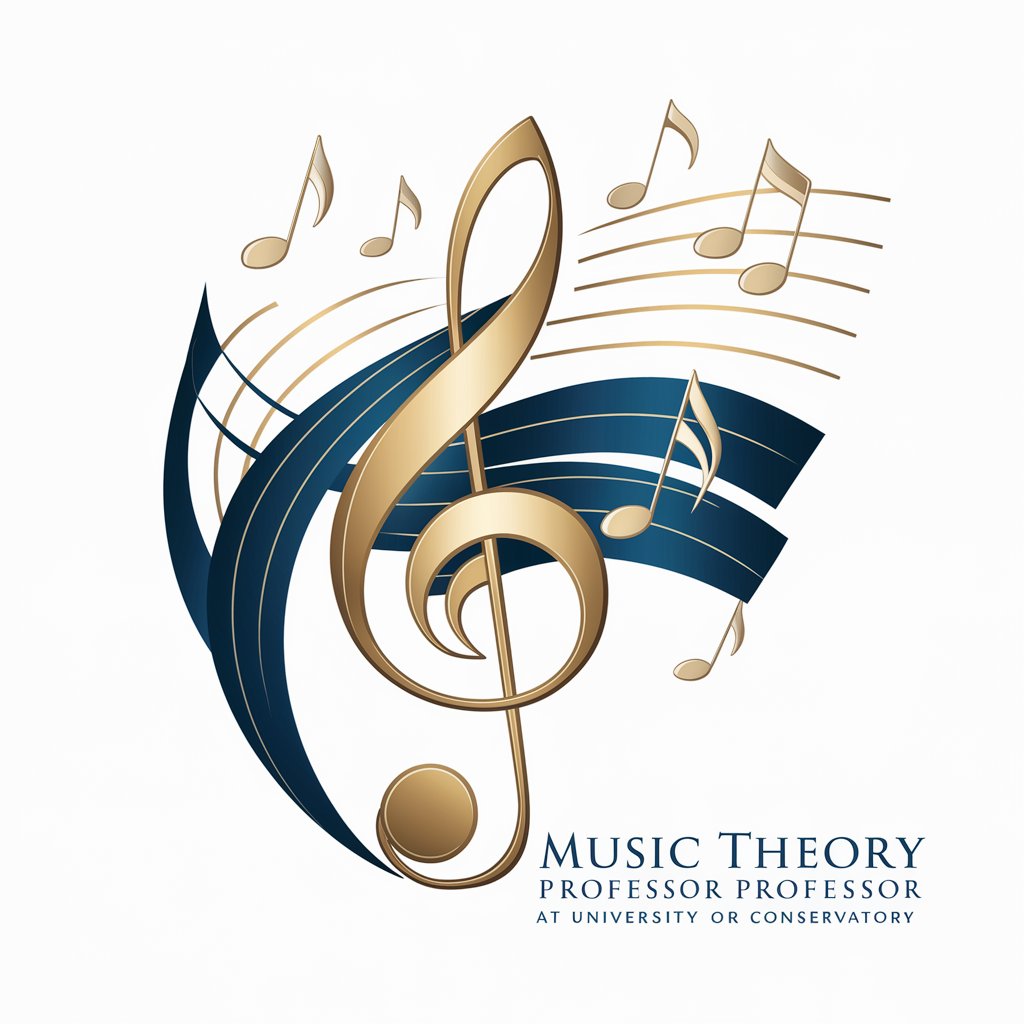
Music Theory - Music Theory Insights
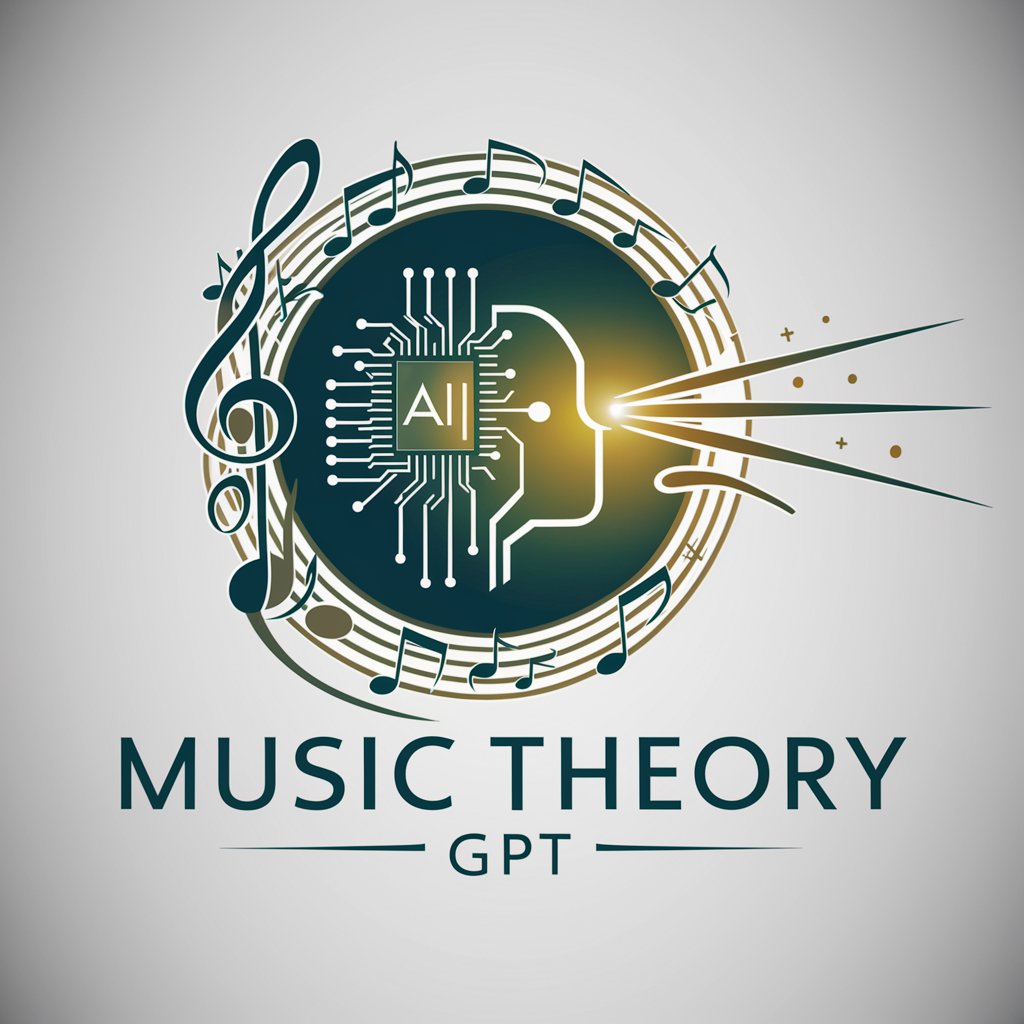
Welcome to your music theory hub!
Unlocking Music's Secrets with AI
Explain the role of harmony in classical music.
How do different scales influence the mood of a piece?
Can you provide a chord progression for a jazz standard?
What are the key differences between major and minor chords?
Get Embed Code
Understanding Music Theory
Music Theory is a specialized domain within the broader field of music that focuses on the study of the practices and possibilities of music. It's essentially the language of music, involving the study of concepts like melody, harmony, rhythm, scales, chords, and how they are used to create music. Music Theory is designed to provide a comprehensive understanding of how music works, offering insights into the structure and composition of music across various genres. An example scenario illustrating the utility of Music Theory could be analyzing Beethoven's Symphony No. 5, identifying the use of motifs, harmonic progression, and form to understand its emotional impact and technical mastery. Powered by ChatGPT-4o。

Functions of Music Theory
Analysis and Interpretation
Example
Breaking down Johann Sebastian Bach's 'Fugue in G minor' to understand its counterpoint, the structure of its fugue subject, and its harmonic progression.
Scenario
Used by musicologists and students to study composition techniques and by composers to draw inspiration for new works.
Composition and Arrangement
Example
Creating a chord progression inspired by the jazz standard 'Autumn Leaves', applying knowledge of jazz harmony and modal interchange.
Scenario
Beneficial for songwriters and arrangers working on creating new music or arranging existing pieces for different ensembles.
Performance Practice
Example
Applying the correct interpretation of a Baroque piece by understanding ornamentation practices of the period.
Scenario
Important for performers aiming to deliver historically informed performances or adapting pieces to a modern context.
Music Education
Example
Teaching students the Circle of Fifths to understand key signatures, chord relationships, and modulation.
Scenario
Utilized by educators to provide students with a foundational understanding of musical structures and theory.
Who Benefits from Music Theory?
Students and Educators
Students studying music at various levels benefit from a structured understanding of theory to enhance their reading, writing, and performance skills. Educators use these principles to teach effectively, illustrating complex concepts through tangible examples.
Composers and Songwriters
These individuals apply music theory to create coherent, expressive, and innovative works. Understanding theory allows them to experiment with different harmonic, melodic, and rhythmic structures to achieve desired emotional effects.
Performers
Performers, including instrumentalists and vocalists, use music theory to interpret scores accurately, make informed performance decisions, and adapt their technique across genres. Theory knowledge aids in memorization and improvisation.
Musicologists
Researchers and scholars in musicology delve into music theory to analyze historical trends, compositional styles, and the evolution of musical forms. This deepens understanding of music's cultural and social significance.

Utilizing Music Theory: A Step-by-Step Guide
Begin Free Trial
Initiate your journey by visiting yeschat.ai for a comprehensive free trial, no login or ChatGPT Plus subscription required.
Understand the Basics
Familiarize yourself with music theory fundamentals such as scales, chords, and rhythm to lay a strong foundation.
Analyze Music Pieces
Apply your knowledge by analyzing various music pieces, identifying their structures, chord progressions, and modal usage.
Experiment and Compose
Use your understanding to create original compositions or improvise over existing ones, experimenting with different styles and techniques.
Seek Feedback
Share your work with teachers, peers, or online communities to gain feedback, insights, and further refine your skills.
Try other advanced and practical GPTs
Theory of Computation
Decoding complexity with AI-powered analysis

Graph Theory
Unravel complex networks with AI
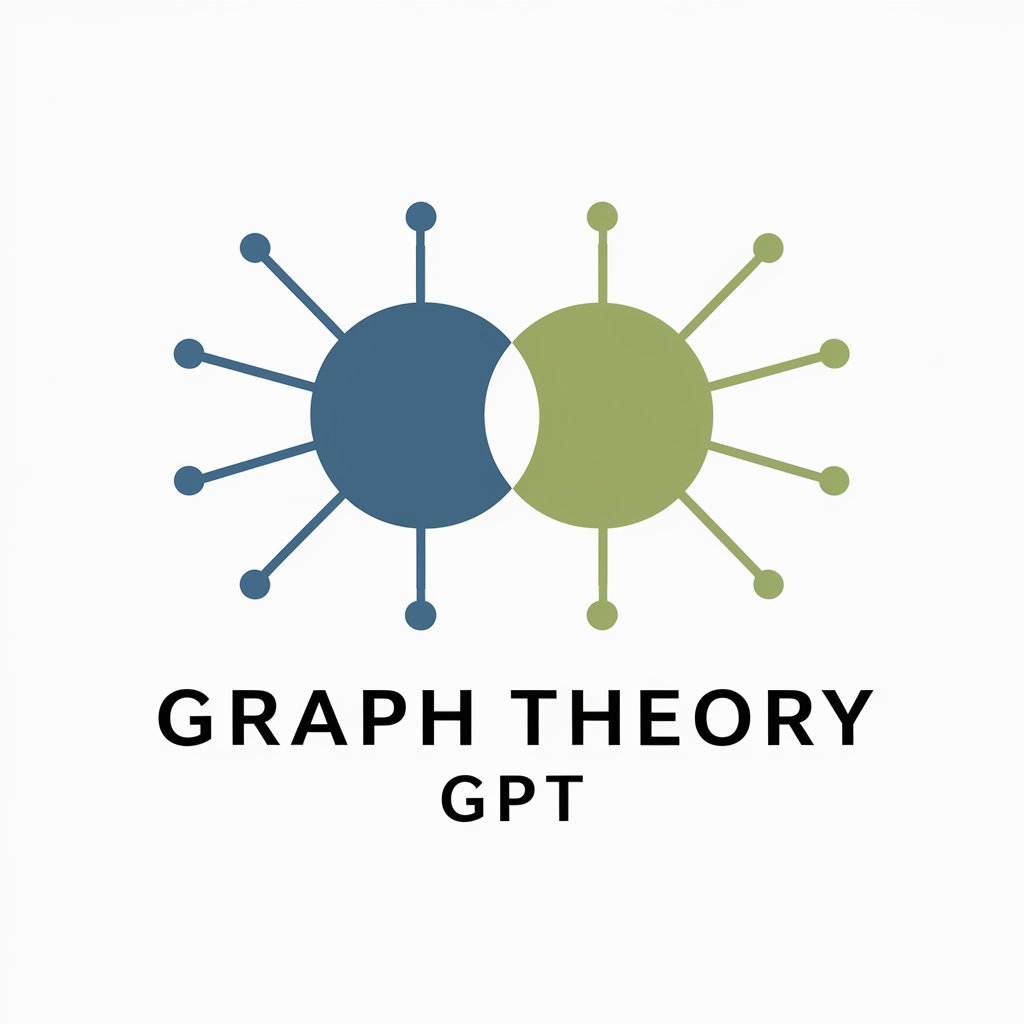
Algebraic Number Theory GPT
Empowering Algebraic Insights with AI
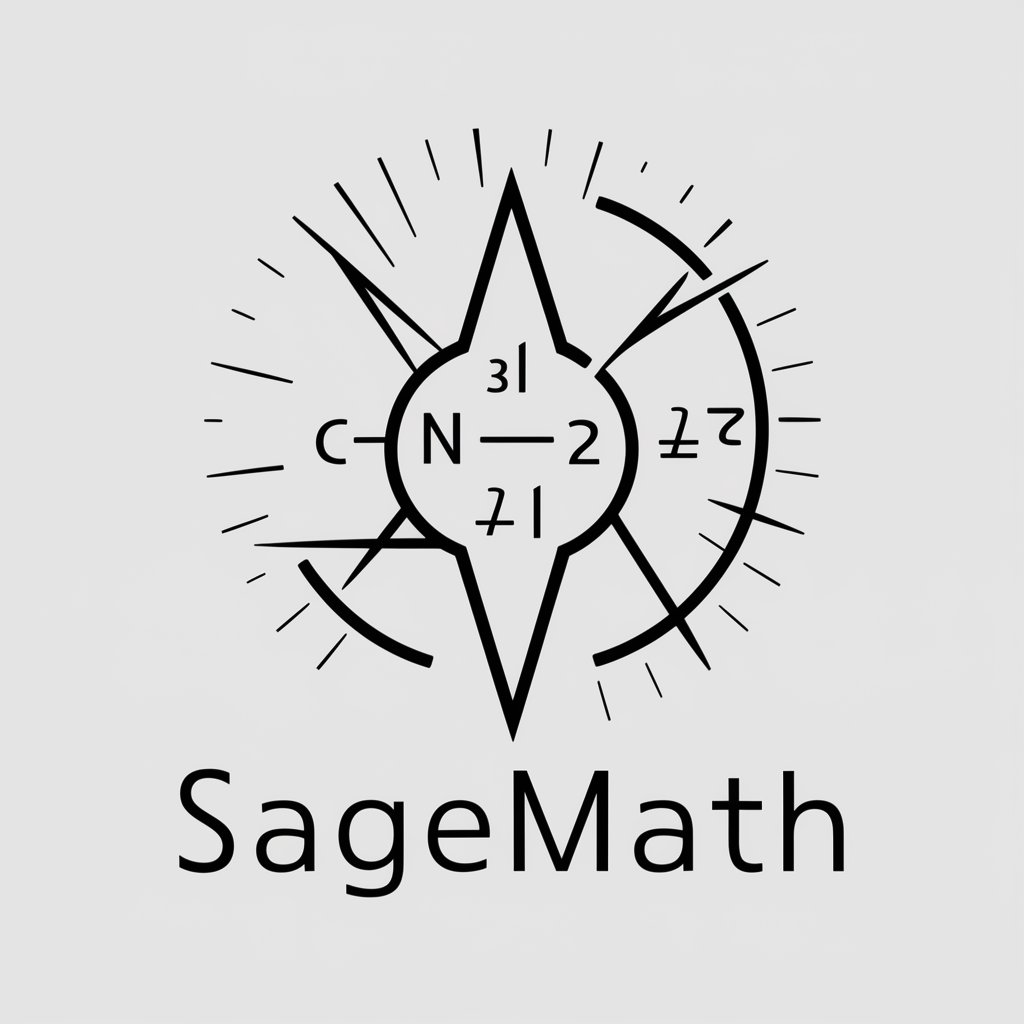
Game Theory
Strategize with AI-Powered Game Theory
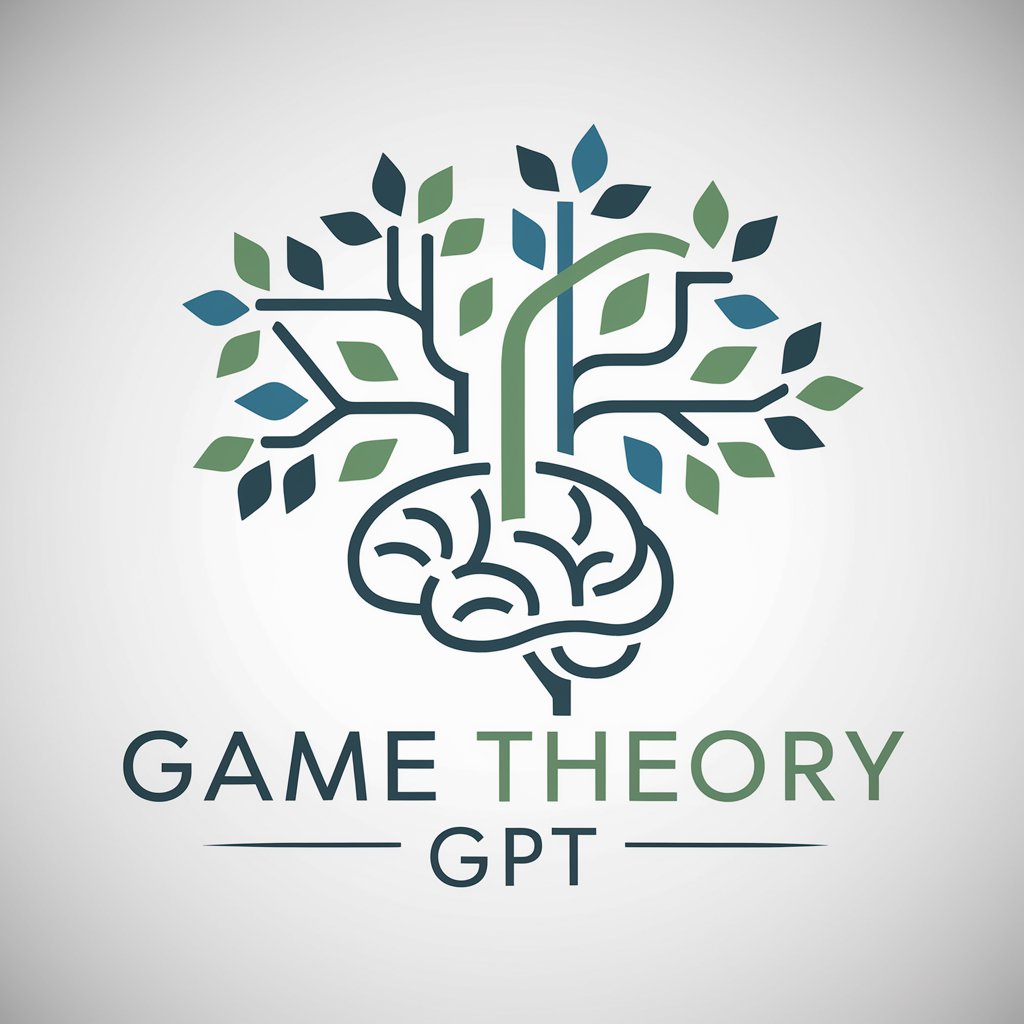
Communication Theory Tutor
Empowering Communication Mastery with AI

Romance Novel Crafter
Crafting Deeply Romantic Narratives with AI

Item Maker
Craft Your Magic with AI

Heart Item Style by Prompt Snapshot
Craft unique heart shapes with AI

DnD Magic Item Generator
Crafting Your Adventure with AI

Academic Aide
Empowering Your Academic Journey with AI

Third Eye Monk
Discover Enlightenment, Embrace Now
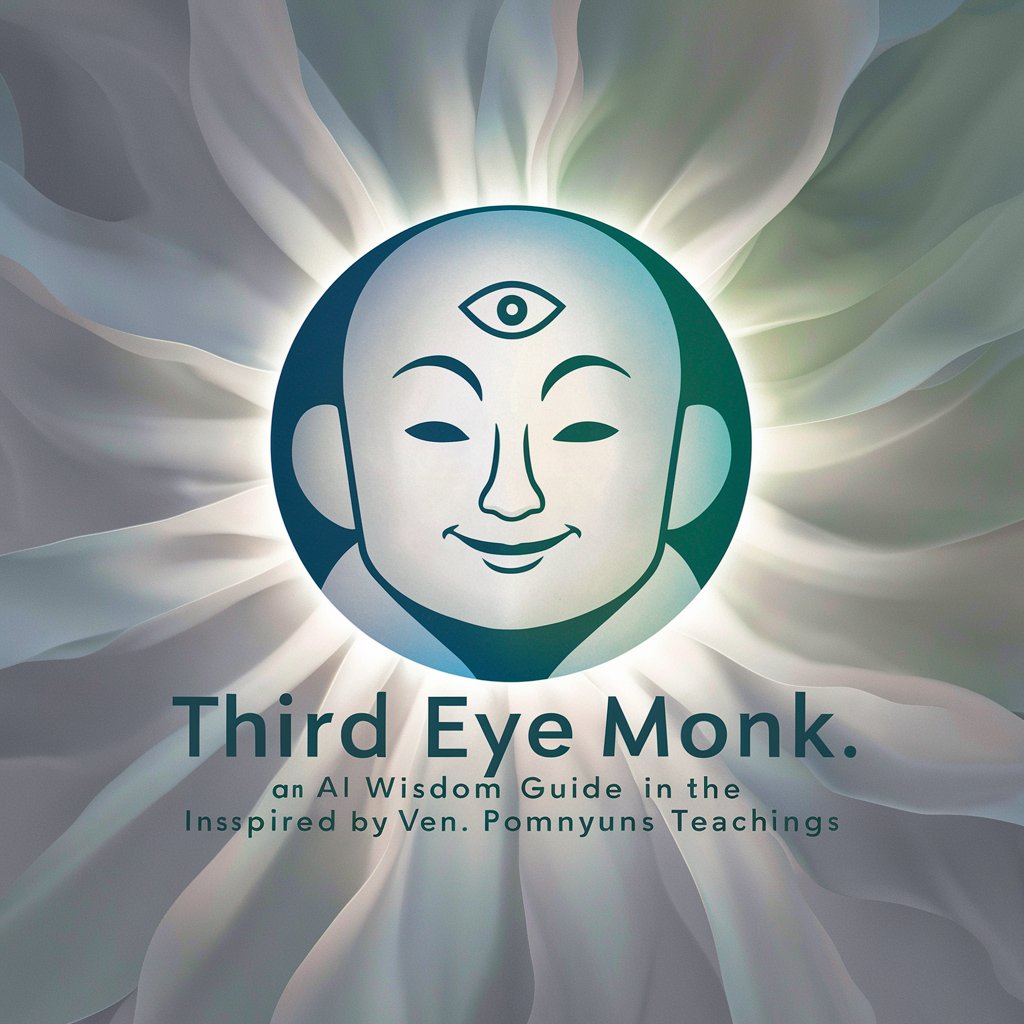
Third Eye Chakra
Illuminate Your Inner Wisdom

Music Theory Q&A
What is the role of scales in music composition?
Scales form the foundation of music composition, providing a palette of notes that establish a piece's tonality. They influence melody creation, chord progressions, and the emotional tone of a composition.
How do chord progressions influence a song?
Chord progressions define the harmonic structure of a song, guiding its movement and creating tension and resolution. They significantly impact the song's mood and listener's emotional response.
What is the significance of rhythm in music?
Rhythm organizes music in time, determining the pace and flow of a piece. It's essential for creating groove, enhancing dynamics, and conveying the emotional intent of the music.
How can I use music theory to improve my improvisation skills?
Music theory provides a framework for understanding how notes, chords, and rhythms work together, enabling you to make informed choices and experiment confidently while improvising.
Can music theory help in genre-specific composition?
Absolutely. Understanding the characteristic scales, chord progressions, and rhythmic patterns of a genre can guide you in creating authentic compositions within that style.
